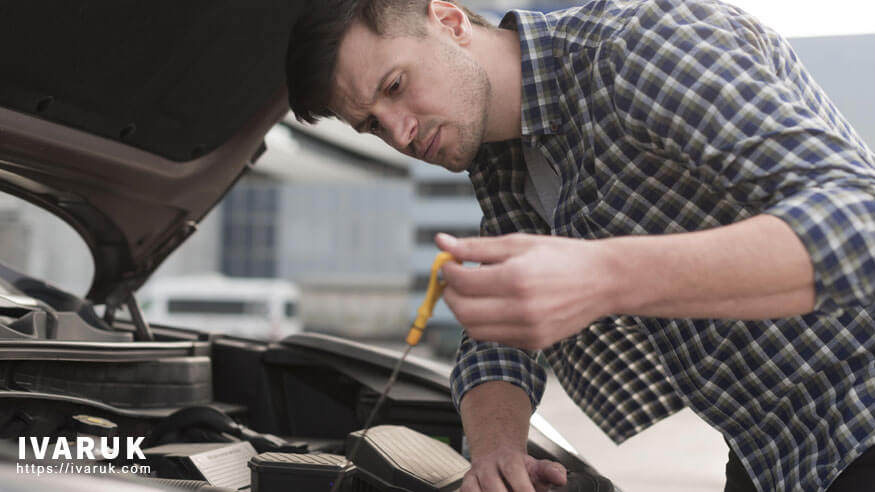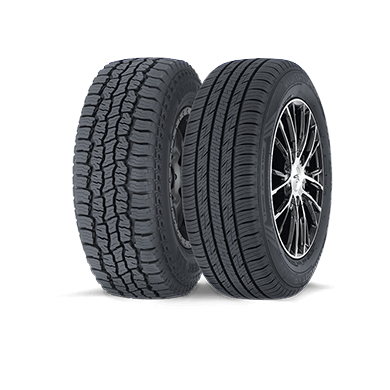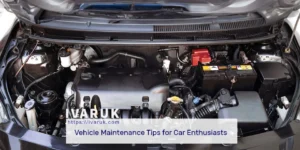Table of Contents
ToggleCar maintenance, auto maintenance, vehicle upkeep – call it what you will, but taking care of your car is like taking care of your health. Just like regular exercise and a balanced diet keep you fit, a well-maintained car ensures smooth and reliable performance. In this article, we’ll dive into the world of car maintenance and explore essential tasks, cost-effectiveness, and debunk common myths.
The Importance of Regular Car Maintenance
Imagine neglecting your health for years and then wondering why you suddenly fall sick. Similarly, not maintaining your car can lead to unexpected breakdowns and hefty repair bills. Regular maintenance keeps your car running efficiently, improves fuel economy, and enhances safety. Plus, a well-maintained vehicle retains its value better.

Essential Car Maintenance Tasks
-
Checking and Changing Engine Oil
Engine oil is the lifeblood of your car’s engine. Regularly checking the oil level and changing it as recommended by your car’s manual ensures optimal lubrication, prevents overheating, and prolongs the engine’s life.
-
Monitoring Tyre Health
Healthy tyres provide better traction and handling. Regularly check tyre pressure, rotate the tyres, and inspect for signs of wear. This not only ensures safety but also improves fuel efficiency.
-
Regular Brake Inspections
Brakes are crucial for your safety. Squealing brakes or a spongy brake pedal could indicate a problem. Regular inspections and maintenance of brake pads, rotors, and brake fluid can prevent accidents.
-
Fluid Level Checks
Your car relies on various fluids, including coolant, transmission fluid, and power steering fluid. Regularly checking and topping up these fluids helps your car perform optimally and prevents overheating.
Mobile Tyre Repair
Experience Smooth Journeys with IVARUK’s Top-notch Tyre Services.
We cover all of London and a 70-mile radius of London
Contact us and get a 20% discount.

What Are the Different Types of Car Maintenance?
There are many different types of car maintenance, but some of the most common include:
- Oil change: This is one of the most important types of car maintenance. It’s important to change your oil regularly to prevent engine damage.
- Tyre rotation: This is important to do because tires wear unevenly. Rotating your tires helps to extend their life.
- Air filter replacement: The air filter helps to keep dirt and debris out of your engine. It’s important to replace it regularly to prevent engine problems.
- Coolant flush: The coolant helps to keep your engine cool. It’s important to flush it regularly to prevent overheating.
- Brake fluid flush: The brake fluid helps to keep your brakes working properly. It’s important to flush it regularly to prevent brake problems.
- Belts and hoses inspection: The belts and hoses in your car help to keep it running smoothly. It’s important to inspect them regularly for wear and tear.
- Tune-up: A tune-up is a more comprehensive type of car maintenance that includes checking and replacing a variety of parts.

Extending the Lifespan of Your Vehicle
-
Scheduled Maintenance Checks
Following your car manufacturer’s recommended maintenance schedule is like giving your car a doctor’s appointment. Regular tune-ups, filter changes, and inspections address issues before they become major problems.
-
Proper Driving Habits
Your driving habits affect your car’s lifespan. Aggressive driving, sudden stops, and excessive speeding can wear down components quickly. Gentle acceleration and obeying speed limits can significantly extend your car’s life.
🚗 Keep Your Car Running Smoothly with IVARUK’s Car Inspection and Repair Services! 🚗
Is your car due for a check-up? At IVARUK, we understand the importance of regular car maintenance, and that’s why we offer top-notch Car Inspection and Repair services that are tailored to keep your vehicle in prime condition.
DIY vs. Professional Maintenance
-
DIY Maintenance Benefits
Many car maintenance tasks can be done at home. DIY enthusiasts enjoy changing the oil, replacing air filters, and even swapping spark plugs. This not only saves money but also fosters a deeper connection with your vehicle.
-
Professional Maintenance Advantages
While DIY is rewarding, some tasks are best left to professionals. Complex repairs, computer diagnostics, and advanced maintenance require specialized tools and expertise that auto shops provide.
Signs of Neglected Maintenance
-
Warning Lights and Signals
Modern cars come with a dashboard full of warning lights. Ignoring these lights can lead to severe damage. If your check engine or oil pressure light is on, it’s time for a check-up.
-
Unusual Noises
Cars communicate through sounds. Squealing brakes, grinding gears, or knocking noises might indicate underlying issues. Addressing them promptly can prevent further damage.
The Cost-Effectiveness of Maintenance
Investing in maintenance might seem expensive upfront, but it’s a small price to pay compared to major repairs or premature vehicle replacements. Regular maintenance prevents larger issues that can drain your wallet.
Common Car Maintenance Myths
- Myth: You should change your oil every 3,000 miles.
Fact: Follow your car manufacturer’s guidelines for oil change intervals.
- Myth: Premium fuel enhances performance.
Fact: Unless your car requires it, regular fuel is sufficient and won’t improve performance.
- Myth: Letting your car idle warms up the engine.
Fact: Modern engines don’t need prolonged idling; driving gently warms them up faster.

Here are some key points from the article:
Regular car maintenance can help prevent costly repairs, extend the life of your car and improve your safety.
The frequency of car maintenance depends on the make and model of the car, your driving habits and the environment in which you drive.
Some of the most important types of car maintenance are oil changes, tire rotations, air filter changes, coolant flushes, and brake fluid flushes.
You can do some basic car maintenance yourself, such as checking the oil level and tire pressure.
Leave more complex vehicle maintenance to IVARUK‘s skilled mechanics.
By following the tips in this article, you can keep your car running smoothly and avoid costly repairs.
Frequently Asked Questions
- How often should I change my car’s oil?
Your car’s manual will specify the recommended oil change interval; typically, it’s between 5,000 to 7,500 miles.
- Can I replace only one tyre if it’s damaged?
While it’s possible, it’s generally recommended to replace tyres in pairs (both front and both rear) to maintain balanced handling.
- Do I need to follow the manufacturer’s maintenance schedule strictly?
Yes, following the manufacturer’s schedule helps prevent major issues and keeps your warranty valid.
- Is it necessary to use the dealership for maintenance to keep the warranty?
No, you can have maintenance done at certified independent repair shops without voiding the warranty.
- Are DIY brake repairs safe for beginners?
Brake systems are complex and crucial for safety; it’s best to leave brake repairs to professionals, especially beginners.
- Can I skip a maintenance task if my car seems fine?
Regular maintenance prevents hidden issues; skipping tasks can lead to bigger and more expensive problems later.
- Does driving gently really improve fuel economy?
Yes, avoiding rapid acceleration and heavy braking improves fuel efficiency and reduces wear on your car’s components.
- How can I find a reliable and trustworthy mechanic?
Ask for recommendations from friends or read online reviews; choose a mechanic with good credentials and transparent communication.



